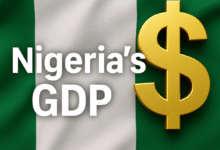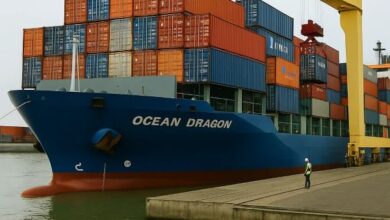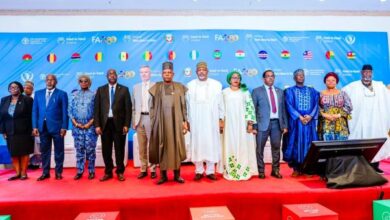Nigeria’s Sovereign Wealth Agency Records $350 Million Earnings
The Nigeria Sovereign Investment Agency (NSIA) says earnings described as “value addition” from various investments with its seed capital since it began operations in 2013 stands at over $350 million.
Apart from $1 billion by the Obasanjo administration, the Managing Director of the Authority, Uche Orji, said additional $500 million by the present administration in 2015 increased the core equity capital to about $1.5 billion.
Other third-party funds managed on behalf of other government agencies are the Debt Management Office ($122.60 million), presidential initiatives on infrastructure development fund ($650 million) and earnings from the Nigeria Stabilisation Fund (₦13.64 billion)
“Gross sum of $417.46 million, including about $350 million principal plus returns, repaid to the Nigeria Bulk Electricity Trading Company Plc (NBET) following the expiration of the four-year investment term,” he said.
In 2016, the agency said it realised about N149.83 billion as income, apart from N130.37 billion in profit. The figures, however, dropped to N27.93 billion and N22.55 billion respectively in 2017. He said the core capital equity stands at about $2.53 billion today.
Announcing the results for the 2018 financial year, Mr Orji said the NSIA showed strong performance despite concerns over international trade flows, slow growth in key economic indicators and increased volatility across financial markets.
He said total comprehensive income, including $18.05 million as foreign exchange gains, stood at about N44.34 billion, from N27.93 billion in the previous year.
Total income grew by 88.5 per cent, from N30.62 billion in 2017 to N57.73 billion in 2018, while interest income of about N23.82 billion, represents a 9 per cent year-on-year was earned in 2018, an increase from the N21.77 billion in 2017.
According to Orji, a review of the performance across the three investment funds showed it maintained a positive trajectory on returns on capital employed.
With 100 per cent funds deployed, the NSIA MD said the Stabilisation Fund yielded over 7.2 per cent in profits.
From about 81 per cent of the Future Generations Fund deployed, he said about 8.3 per cent profit was realised during the year. The Nigeria Infrastructure Fund yielded over 7.7 per cent from the deployment of only 17 per cent of the fund.
Orji, who described the 2018 financial year as an exceptionally busy year for the NSIA, said highlights of its activities focused on domestic infrastructure projects in agriculture, healthcare, and infrastructure enabling financial institutions.
He said total assets grew by about 16 per cent, from about N533.88 billion in 2017 to about N617.70 billion at year-end.
In healthcare, Orji said financial closure was reached on three healthcare projects, including a Cancer Centre at Lagos University Teaching Hospital (LUTH) and Advanced Diagnostic Centres at Federal Medical Centre Umuahia (FMCU) and Aminu Kano Teaching Hospital (AKTH).
With LUTH cancer centre commissioned, he said the facility would soon be fully open for clinical operations for Nigerians.
On the Presidential Fertiliser Initiative, Orji said during the year, an addition 5.5 million bags of NPK 20:10:10 fertiliser was produced and sold in Nigeria with total production at about 12 million bags of fertiliser produced to date.
Again, two additional blending plants were accredited in Kaduna and Zamfara respectively bringing the number of plants to about 18 blending plants currently
He said with about $650 million from National Economic Council, the Presidential Infrastructure Development Fund (PIDF) would soon commence capital deployment across three of its major road projects.
These include the construction of the 2nd Niger Bridge, the Lagos – Ibadan Expressway and Abuja-Zaria-Kaduna-Kano Road.
Under agriculture, he said the joint venture between NSIA and UFF, Novum, a fully integrated farm located on 3,500 hectares of land in Panda, Nasarawa State has since reached financial close on the project.
The other achievement listed includes the significant progress under the InfraCredit, which he said attracted other investors to the company.
“InfraCredit is poised to transform the infrastructure bond market having facilitated transactions for North South Power and Vitan. New investors in InfraCredit, African Development Bank (AfDB) and KfW.”
In 2019, he said key infrastructure projects being considered include the pursuit of the Abuja Commodities Exchange (NCX), for which the NSIA is in the process of selecting a strategic partner.
He said the NSIA is pushing forward the Investment in the basic chemical platform to produce ammonia and other Fertiliser products in partnership with OCP of Morocco:
Although the global market in 2018 experienced high volatility, Orji said the NSIA is expected to return to a relatively stable terrain in 2019.
The deployment of the PIDF, he said, will play a key part of the NSIA’s infrastructure investment strategy for the year, with healthcare remaining a focus area going forward, with the implementation of next phase of diagnostic and treatment centres.
Also, he said the Board has already approved gas industrialisation as an area of focus during the year, in addition to increased focus and capital deployment in Infrastructure.
Following NSIA’s appointment as the programme manager of the PIDF, the agency said it has received about $650 million from the National Economic Council.
Funds have already been disbursed for construction works on the Lagos-Ibadan Expressway, Second Niger Bridge; Abuja-Kaduna-Zaria-Kano Road. To date, NSIA has disbursed ₦77.6 billion under the PIDF programme.
Samson Oyedeyi












